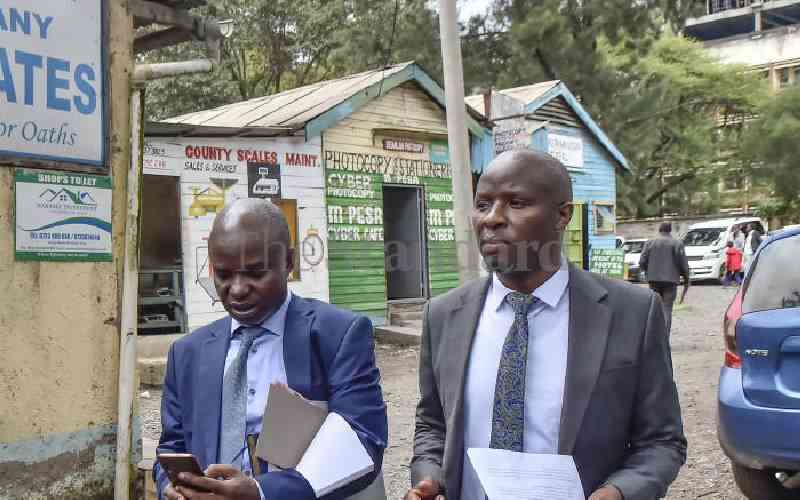By Ali A Mazrui
Two striking predictions were made about black people in the twentieth century: Robert F Kennedy foresaw that the United States would elect a black President within 40 years. He made this prediction in an interview with the Voice of America in 1968, the year of his own assassination. The election of Barack Obama to the US Presidency in 2008 has fulfilled Kennedy’s prophecy beyond the wildest expectations.
The second prophecy was made by Mahatma Gandhi to the effect that the torch of his ‘soul force’ or non-violent resistance (satyagraha) would be passed to blacks. This Gandhian prediction lacks the precision of the Kennedy forecast, but his Afro-optimism about black folk as vanguards of ‘soul force’ is borne out by Africa’s short memory of hate. Africans are just as violent as any other people in the world, but they move towards forgiveness much faster than average.
Africa has also fielded an impressive number of Nobel Peace Laureates since the second half of the 20th century.
It is true that Gandhi himself was never awarded the Nobel Peace Prize, but some of his disciples in the black world — from US civil rights leader Martin Luther King Jr to South African Archbishop Desmond Tutu — turned out to be among the most prominent Nobel Peace Laureates.
The population of India is bigger than the population of all Africa added together. But Africa has won many more Nobel Prizes than has India.
True, Mahatma Gandhi was nominated more than once for the coveted Prize, but the influence of the British Empire during his era was still too strong to permit the award of a peace prize to a leader of an anti-colonial movement like that of India.
Now the world is facing the staggering novelty of the first black President of the US. As an American President, Obama has now become the most powerful black man in the history of civilisation. Since assuming office, he exercises the immense leverage of the US as a superpower. In this capacity, he is more powerful than all African icons added together.
Will Obama be a great President? And will that greatness be in terms of ‘soul force’ and avoidance of war?
Every US President since Franklin D Roosevelt has initiated either a full-scale war or some kind of an armed conflict. Indeed some Republicans, like Ronald Reagan and the two Bushes, unleashed more than one war each. The minimum test for Obama as an embodiment of Gandhi’s satyagraha is whether he can be the first US President since World War II to refrain from initiating a major conflict.
Acting presidential
Of course, Obama is inheriting two wars — the Iraq War he would like to speedily end, and the Afghan War that he may try to escalate. But neither war was launched by him. Can he avoid initiating a military conflict with Iran, North Korea or Syria?
Will Obama be the first US President in 70 years to refrain from making a decision to start a new war? Will he avoid the temptation of equating ‘acting presidential’ with a readiness to embark on military force?
Gandhi made his prediction about black non-violence in 1936, when FDR was President. Will Obama be the first since Gandhi made that prediction to be a truly peace-loving US Commander-in-Chief?
The prophecy about black satyagraha hangs in the balance with the election of the most powerful black person in history. Given with the power to destroy the world, will Obama start the process of saving it? There is no room for complacency, but is there still room for Afro-optimism?
Stay informed. Subscribe to our newsletter
A major sign of hope is embodied in Obama’s personal background as a product of at least three civilisations (American, African and Islam), with a wider multiculturalism in Indonesia, when he was a child, and in Hawaii, where he was born and spent much of his childhood.
In addition to being black, Obama is the first US President who is the son and grandson of Muslims on the paternal side. Indeed he has a Swahili first name (Baraka), Muslim middle name (Hussein) and an African family name, Obama.
Does he have a chance of embodying Gandhian ‘soul force?’
—The writer is a prominent academic and essayist on African and Islamic studies.
 The Standard Group Plc is a
multi-media organization with investments in media platforms spanning newspaper
print operations, television, radio broadcasting, digital and online services. The
Standard Group is recognized as a leading multi-media house in Kenya with a key
influence in matters of national and international interest.
The Standard Group Plc is a
multi-media organization with investments in media platforms spanning newspaper
print operations, television, radio broadcasting, digital and online services. The
Standard Group is recognized as a leading multi-media house in Kenya with a key
influence in matters of national and international interest.
 The Standard Group Plc is a
multi-media organization with investments in media platforms spanning newspaper
print operations, television, radio broadcasting, digital and online services. The
Standard Group is recognized as a leading multi-media house in Kenya with a key
influence in matters of national and international interest.
The Standard Group Plc is a
multi-media organization with investments in media platforms spanning newspaper
print operations, television, radio broadcasting, digital and online services. The
Standard Group is recognized as a leading multi-media house in Kenya with a key
influence in matters of national and international interest.




